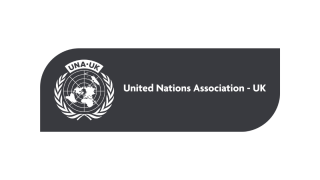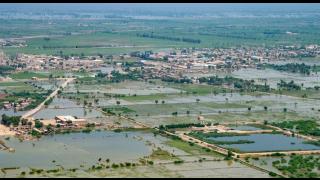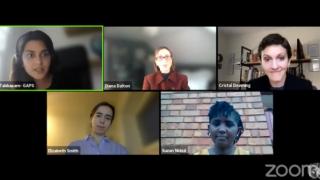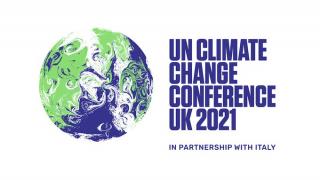
The latest round of talks on what should follow the Millennium Development Goals - the UN's flagship anti-poverty initiative which is set to expire in 2015 - concluded in Monrovia, Liberia today. UNA-UK is currently promoting a campaign seeking public input into the talks.
Economic transformation was the focus of this meeting, which marked the half-way point of a long consultative process. The final communiqué included language on job creation, sustainable growth, proper stewarship of natural resources and partnerships, including with the private sector and civil society.
After the meeting, all three co-chairs of the UN High Level Panel on the Post-2015 Development Agenda - UK Prime Minister David Cameron, Liberian President Ellen Johnson-Sirleaf and Indonesian President Susilo Bambang Yudhoyono - struck a positive note.
Johnson-Sirleaf said that progress had been made on a single and cohesive post-2015 framework that integrates economic growth, social inclusion and environmental protection. While saying that much remains to be done, Yudhoyono said he was "confident" that the panel will deliver on its mandate within the given timeframe. The panel is due to report in May 2013.
One big question for the panel has been the extent to which the post-2015 development and the parallel process to create a set of sustainable development goals should be integrated. Some states, like Brazil, have been pushing for a greater focus on sustainability and for environmental issues to be part of the 'mainstream' development goals. Others, like India, have indicated a preference for keeping the two processes separate. These states have expressed concern that the focus on poverty would get diluted in a single process.
Countries are also divided on whether human rights, democracy and good governance should be included in the framework. Meanwhile public accountability, women's rights and empowering people to become agents of change were the key issues raised in the civil society communiqué.
Cameron drew particular to these principles, citing the importance of strong institutions and the rule of law to addressing poverty. He also spoke of the need to tackle conflict and corruption - two barriers to development - and to promote responsible capitalism and greater tax transparency.
But he reaffirmed that the overarching aim of the new development framework must be to eradicate extreme poverty. He said: "That should be our rallying cry. We can do it in our generation."
The UK Prime Minister also re-stated his government's commitment to the target agreed by world leaders over four decades ago: devoting 0.7% of GDP to aid.
Click here for a detailed briefing on the issues surrounding the MDGs and the development of the post-2015 framework.
Click here to take part in a public consultation on what should follow the MDGs. The findings will be shared with the High Level Panel.






